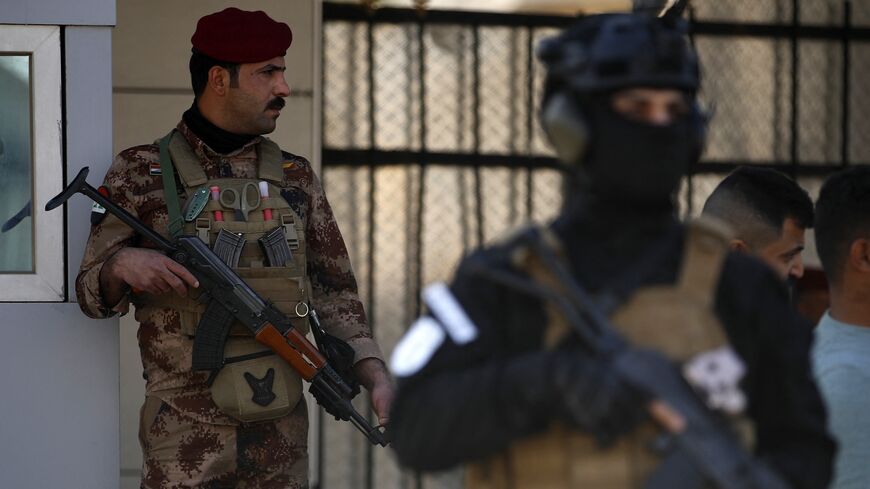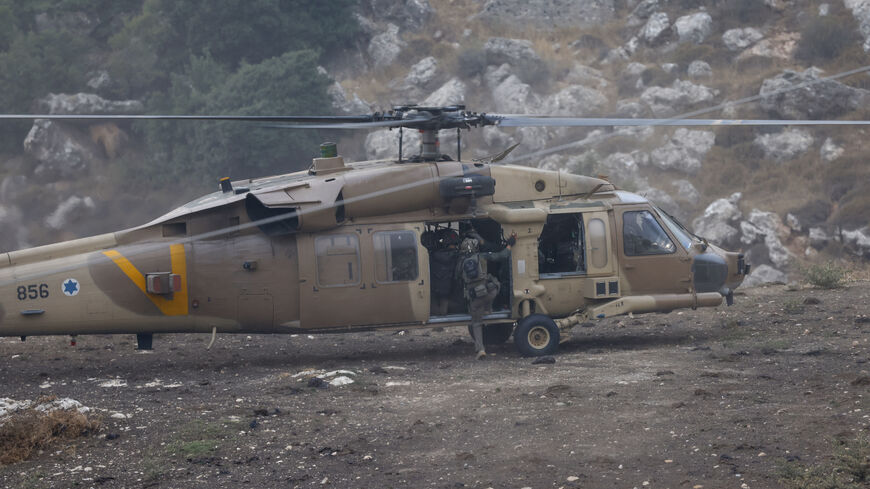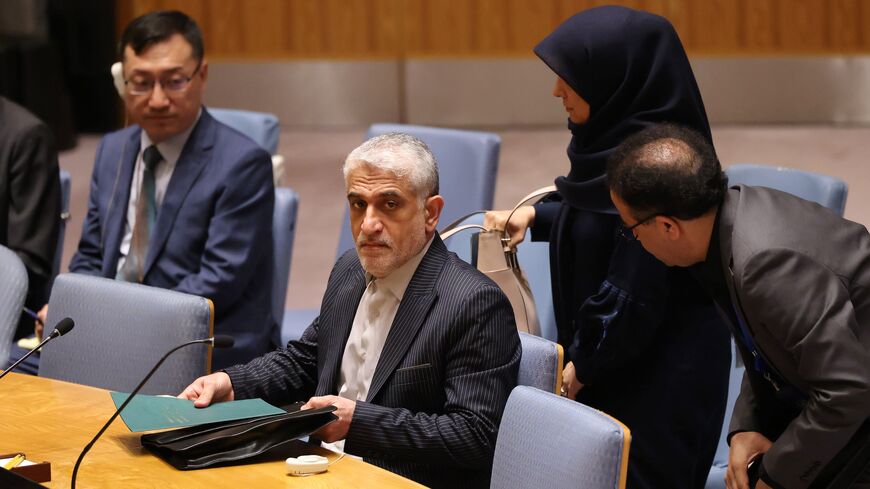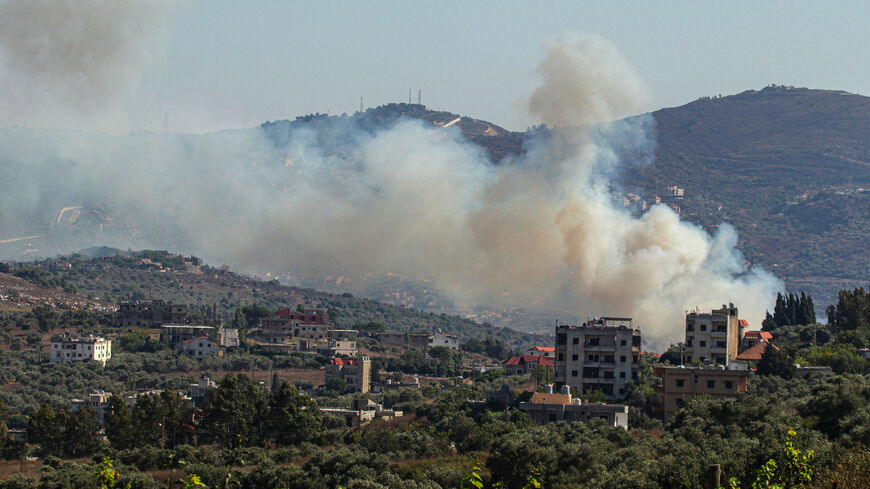White House says Lebanon war not 'inevitable' as Israel preps Hezbollah response
US troops in Iraq and Syria are bracing for potential blowback from local militias ahead of anticipated Israeli retaliation against Hezbollah for a lethal rocket attack on a Druze village in the Golan Heights.
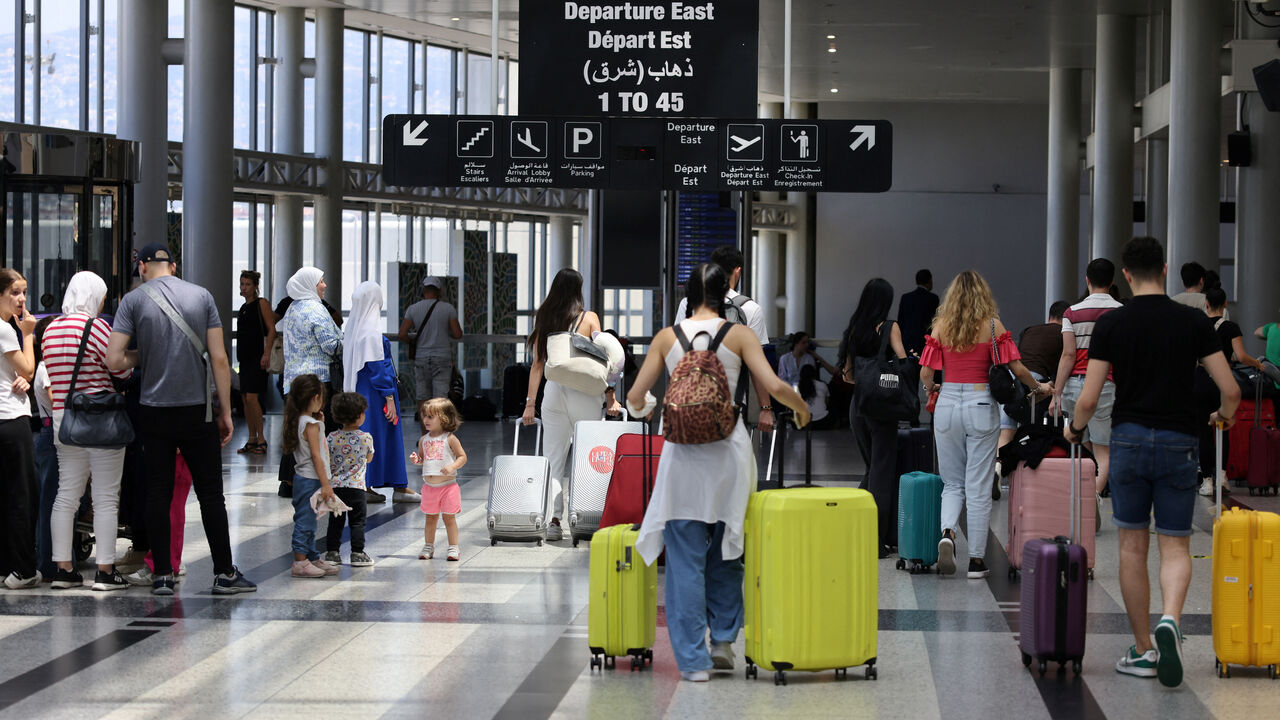
WASHINGTON — Biden administration officials continued to work the phones on Monday to avert a wider regional conflict ahead of anticipated retaliation by Israel for a suspected Hezbollah rocket attack that killed 12 children in the Golan Heights on Saturday.
Israel’s Prime Minister Benjamin Netanyahu on Monday vowed a “severe” response to the attack on the Druze town of Majdal Shams. It was the deadliest barrage launched from southern Lebanon into Israeli-claimed territory amid an ongoing series of retaliatory strikes between Hezbollah and the Israeli military since Oct. 7. Israel occupied the Golan Heights in in 1967 and annexed it in 1981.
Hezbollah denied responsibility for the rocket attack, a claim both Israeli and US officials rejected.
“Israel has a right to defend itself. No nation should have to live with this kind of threat," US National Security Council spokesperson John Kirby said on Monday. Kirby echoed the Israeli military’s assessment that the rocket belonged to Hezbollah, saying it was fired from territory controlled by the militia.
The White House, however, sought to downplay anxieties that an impending Israeli retaliation could trigger a broader regional war, with Kirby labeling such concerns “exaggerated” during a briefing with reporters.
"We still believe there's a time and place for diplomacy so that there isn't an all-out war over the Blue Line," he said. “Based on the conversations we have been having, we don’t believe that this needs to result in an escalation or a broader war. There’s no reason for that outcome to occur,” he added.
But the cautious optimism projected by the White House contrasted with defensive preparations taken by US troops in Iraq and Syria in anticipation of blowback from local militias in response to the impending Israeli strikes.
Iran-backed militias in those countries have repeatedly lobbed rockets and one-way attack drones at bases used by American troops in the region in ostensible retaliation for Israeli military strikes elsewhere in the region.
The militias resumed their harassing attacks in recent weeks following a lull that had set in back in February. US bases in Syria’s Euphrates River Valley came under rocket attack over the past week. Two drones targeted the Ain Al-Asad Air Base in Iraq on July 16.
US Defense Secretary Lloyd Austin called his Israeli counterpart, Yoav Gallant, on Monday to offer condolences for the lives lost in Majdal Shams, as well as to urge caution to avoid greater escalation. A Pentagon official speaking not for attribution following the call suggested Israeli retaliation was inevitable.
Still, officials made no indication of any plans for the United States to intervene in case of a wider conflict, nor of preparations for any imminent evacuation of American personnel from Lebanon.
The State Department dispatched its top officials for management and resources, Richard Verma, and consular affairs, Rena Bitter, to the US Embassy in Beirut last week to “discuss their support for US citizens in a complex and quickly changing security environment,” the agency said.
Verma then traveled to Cyprus to visit “key logistical facilities” and receive a briefing “on ongoing planning to support crisis management in the region.” He was then scheduled to meet with US military officials in Turkey at Incirlik Air Base to “review the logistical resources available to support crisis preparedness needs.”
“We’re still focused on a diplomatic solution,” Kirby said Monday. “We still believe that that's where the locus of our energies ought to be — certainly not on a military solution that involves directly the United States military.”
US Secretary of State Antony Blinken on Monday called Israel’s President Isaac Herzog to offer condolences and underscore the need for a diplomatic solution “to allow citizens on both sides of the border between Israel and Lebanon to return home.”
It remained unclear on Monday whether the subdued confidence emanating from the White House was the result of Israeli officials having briefed their US counterparts on any specific parameters of the retaliation they intended to carry out. Austin previously admonished Gallant in April to coordinate more closely with the Pentagon following airstrikes on Iran's consulate complex in Damascus.
“The state of Israel will not and cannot let this pass. Our response will come, and it will be severe,” Netanyahu said in a statement released by his office following a visit to Majdal Shams on Monday.
Amos Hochstein, the Biden administration’s energy envoy who has taken the lead on negotiating de-escalation between Israel and Hezbollah, cautioned Gallant against launching retaliatory strikes in the Lebanese capital, Beirut, Axios first reported.
A regional diplomatic source speaking to Al-Monitor on the condition of anonymity said Israel was expected to retaliate in a highly visible manner that would not entail major loss of civilian life.
Last week, Israeli F-15s and F-35s launched long-range airstrikes on Yemen’s port of Hodeida, causing a massive fire and pillars of smoke in retaliation for the first-ever lethal Houthi drone attack to reach Israeli territory. The attack killed one man and wounded eight other people in the city of Tel Aviv. Israel's retaliation killed at least eight people and wounded more than 80 others, the Houthis said. It also caused more than $20 million worth of damage to the port, officials said Monday.
Hezbollah has repeatedly vowed to exact a price should Israeli strikes in Lebanon kill more civilians. The tit-for-tat has displaced at least some 90,000 Lebanese citizens and some 70,000 Israelis from areas near the shared border. Yet both sides appear to have largely focused on the other side's military targets in apparent attempts to avoid killing civilians.
The Iran-backed group is believed to possess the largest arsenal of rockets and missiles of any non-state organization, with precision weapons capable of overwhelming Israel's air defenses and inflicting significant damage on civilian infrastructure. Israeli leadership has repeatedly threatened a military offensive to push Hezbollah back from the border should diplomacy fail to do so. Israel's security cabinet approved a response to the Majdal Shams attack on Monday.
“There's no reason that the outcome of this weekend's attacks has to be some all-out war,” Kirby underscored on Monday. “We don't believe that it's inevitable.”



